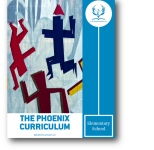
| Home | About Us | Phone Consultation | Contact Us | New Freedom Programs |













Suitable for school classroom, after-school programs, and community programs, grades 4-8, and high school. These materials reduce vulnerability to key risk factors using student workbooks, individual and group activities, lesson plans, and teacher support materials. Many of these resources have been developed for use with high risk youth in high risk schools and communities. Additional materials can be used in gang prevention programs with lower and medium-risk students, schools, and communities.
These gang resistance program resources are based on state-of-the-art evidence-based models reduce to vulnerability to key risk factors. They include significant elements of cognitive-behavioral therapy (CBT) and motivational enhancement therapy (MET), including specific tools for motivational interviewing (MI) in each of the workbooks. Cognitive-behavioral therapy (CBT) promotes re-evaluation of dysfunctional emotions and behaviors to bring about change and reduce vulnerability to key risk factors. Motivational enhancement therapy (MET) seeks to promote change by making the client aware of problems and consequences of behavior. The motivational interviewing (MI) tools we provide are non-confrontational and gently provoke awareness. We can work with you to customize a gang intervention curriculum using cognitive-behavioral therapy (CBT) and motivational enhancement therapy (MET) techniques specifically to the needs of your facility or community program.
These gang resistance resources address critical risk and protective factors in preventing substance abuse, criminal activity, and gang involvement. Specific materials address issues in high risk and medium risk communities and schools, as well as specific concerns for high risk youth. Special gender-specific program resources address vulnerability to key risk factors in girls and young women.
Different materials have been developed for elementary grades (Students in Grades 4, 5, and 6), middle school, and high school. Selected materials are written at lower reading levels, and most are now available in Spanish as well.
Specific gang resistance materials include problem solving skills, clarifying values, dreams and goals, individual self-esteem building, and strength building. Lessons address gang avoidance, substance abuse, refusal and "escape" skills, aggression, anger, and violence management, interpersonal communication skills, and effective coping skills for a variety of high risk situations. New materials address bullying, development of emotional intelligence, character education, and similar positive values.
These gang resistance resources are designed to be used flexibly in schools, after-school programs, community programs, and in other high risk situations. Originally developed for New Jersey Department of Education programs, they include detailed gang resistance lesson plans and links to specific state core curriculum competency standards.
Core Program
The Phoenix Curriculum consists of a core program of five elements with age-appropriate activities:
- What's Important To You? — motivational enhancement materials
- Understanding Your Feelings — emotional intelligence
- Problem Solving — addressing high-risk people, places, things, situations, thoughts, and feelings
- Risk Factors — gangs, alcohol, drugs, peer pressure
- Protective Factors
Supplemental Material
Workbooks include: Change, Gang Awareness, Getting Away From The Gang, Gang Intervention, Gang Issues: Girls Program, Parents' Curriculum, Peer Pressure, Bullying, Programas Comunadarios ("Community Programs"), Program Activity, and What Do You Think?
Learn More
The Phoenix Curriculum — visit PhoenixCurriculum.com on the web for more information. Contact us for more information on these exciting resources. [more]
Decision Tool: Intervention or Prevention? — helps you pick the right material for your program. Explains the differences between prevention and intervention, as well as different kinds of prevention (primary, secondary, tertiary). [more]